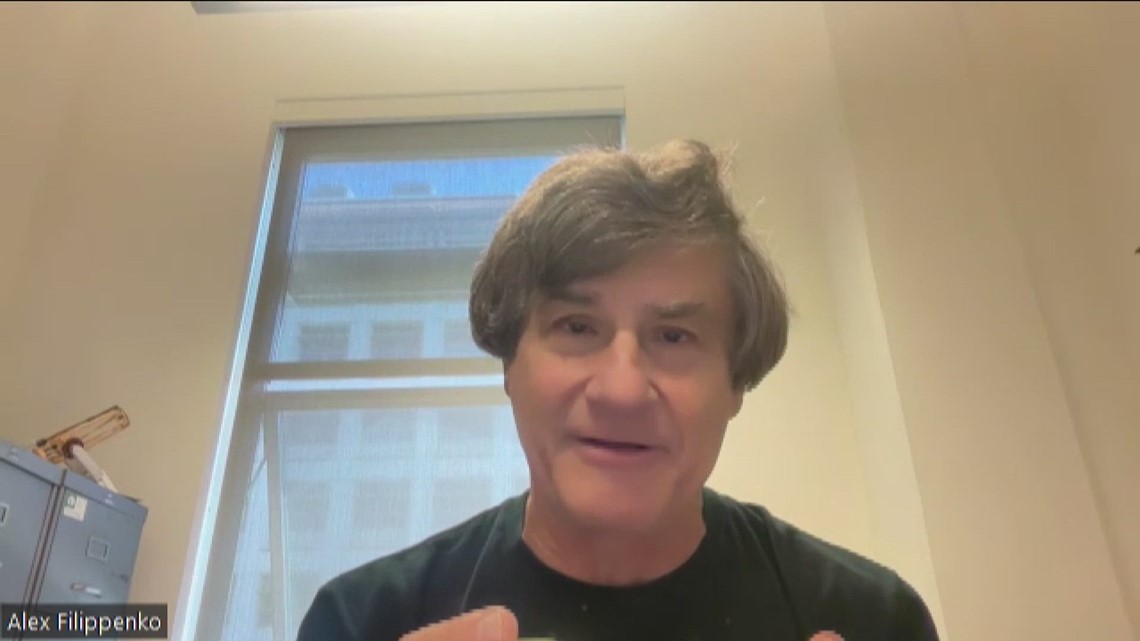
Boise State University is hosting Dr. Alex Filippenko for a discussion at 7:30 p.m. Friday. There is also an opportunity for stargazing, weather permitting.
BOISE, Idaho — If you’ve ever looked up at the night sky and thought “there’s got to be more out there,” it turns out there’s some truth to that.
Dr. Alex Filippenko is an astronomy researcher and professor at University of California Berkeley. He’s coming to Boise this week to talk about the accelerating expansion of the universe.
So, not only is there more out there, but there’s more than ever before, according to Filippenko’s research.
“Space is expanding – not here on Earth, not in our bodies – but in between very distantly separated galaxies,” Filippenko said. “If we take separations between galaxies of 10 million or more light years, it turns out space itself is expanded. The universe is getting bigger. It’s a really bizarre idea.”
Filippenko added researchers’ original expectation was that the expansion would be slowing down.
“The reason for that is just as the Earth’s gravity pulls on this ball (demonstrated in video clip below), when I toss it up, and makes it slow down and stop and eventually come back down, all the galaxies should be pulling on each other, and slowing down the expansion of the universe,” Filippenko said. “Then the big question some decades ago was, is there so much gravity, so much matter in the universe, that it’ll slow the universe to a stop, and then cause it to re-collapse in a big crunch? Sort of the opposite of a big bang.
“Or will the universe, though slowing down, never stop, and thus, expand forever, becoming very cold, dark and dilute? Instead of ending very compressed hot and dense? Those were the two possible fates of the universe,” Filippenko added.
The UC Berkeley professor said researchers know now the universe is expanding, and it’s doing so rapidly.
Filippenko explained there’s a newer development with this research. Researchers have been able to measure the speed at which the universe is expanding. There’s also a model that takes into account all the knowledge we currently have on this topic. It should predict how fast the universe expanding.
The observational measurement and the model’s measurement should match. But, the newer finding is that they don’t. The observational measurement shows the universe is expanding faster than expected.
Filippenko’s work is also nominated for a Nobel Prize for a second time.
You have the opportunity to hear him talk about his work. He will be in town Friday, Nov. 3, at Boise State University. Their ‘First Friday Astronomy’ event will be at 7:30 p.m. in the Liberal Arts Building, Room 106.
There is also an opportunity for stargazing after Filippenko’s talk, weather permitting.
See the latest news from around the Treasure Valley and the Gem State in our YouTube playlist:
https://youtube.com/watch?v=videoseries&list=PLggbABFJJpUD5fI-IlhqklBTFJbW9jkWo
HERE ARE MORE WAYS TO GET NEWS FROM KTVB:
Download the KTVB News Mobile App
Apple iOS: Click here to download
Google Play: Click here to download
Watch news reports for FREE on YouTube: KTVB YouTube channel
Stream Live for FREE on ROKU: Add the channel from the ROKU store or by searching ‘KTVB’.
Stream Live for FREE on FIRE TV: Search ‘KTVB’ and click ‘Get’ to download.
